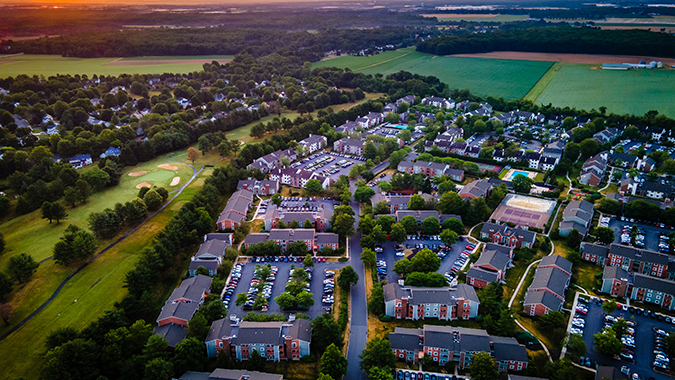High property taxes and economic issues, such as the cost of living, are the biggest top-of-mind concerns for New Jersey residents, with 48% of respondents saying they would like to move out of the state at some point, according to a recent Monmouth University Poll.
About half of Garden State residents polled mention some form of taxes when asked to name the most important issues facing New Jersey right now. Property taxes (39%) tops this list, as it has on almost every occasion Monmouth has asked this top-of-mind question going back to 2009. The second most frequently mentioned issue is the economy and cost of living (24%), which has not registered this high a concern since 2009.
Currently, 48% of respondents said they would like to move out of the state at some point, which is down from 2022 when 59% wanted to move. Asked in the latest poll how likely it was that they would leave New Jersey, 28% said it was very likely and 27% said it was somewhat likely.
Those under the age of 55 were more likely to want to leave than those over 55. The poll found that 57% of those between ages 18-34 wanted to leave; 54% of those between the ages of 35-54 wanted to leave; and 37% of those older than 55 wanted to leave.
Those earning over $100,000 a year were more likely to want to leave (55%) than lower income earners. The poll found that 43% of those earning between $50,000 and $100,000 wanted to leave and 41% of those earning less than $50,000 wanted to leave.
Among those who want to leave New Jersey, 43% say the state’s high cost of living is the most important factor behind their desire to move out, while 52% say it is one of several top factors. Just 5% say it is not a factor at all. Among those who say they are at least somewhat likely to actually leave the state, most say the move will come after retirement (63%, a number that includes those who are already retired).
“Take New Jersey’s already high cost of living and add inflationary pressures to it. This may not be driving out more people than in the past, but it certainly isn’t helping to reduce out-migration,” said Patrick Murray, director of the independent Monmouth University Polling Institute.
In 2026, the state intends to implement the Stay NJ program that would cut property taxes in half for most senior homeowners. Just 36% of New Jersey residents said they have heard at least a little about this coming program, including 36% of those age 55 and older. The program will have an income cap of $500,000 per year.
Monmouth asked about the income cap in the poll. Just 3 in 10 New Jerseyans say the program should have a lower cap (17% at $250,000 annual income and 13% at $150,000), while 15% would cap it at $500,000 or higher. However, fully half (50%) would not cap it at all, saying the program should be available to all senior homeowners regardless of income.
Assuming Stay NJ is implemented in two years as scheduled, 27% of all New Jerseyans say they would be a lot more likely to remain in the state and 26% would be a little more likely. Another 45% say this program would have no impact on their decision whether to stay or leave.
Focusing just on those New Jerseyans who say they are very likely to move out of state at some point, the Stay NJ program will make 16% of this group a lot more likely to remain and 29% a little more likely, but just over half (53%) say it would not affect their decision.
These numbers shift, though, among current likely leavers who are age 55 and over – 21% of this group would be a lot more likely to stay and 40% would be a little more likely, with just 35% who say the Stay NJ program would have no impact on their decision.
“Hypotheticals in polling have to be taken with a grain of salt,” Murray said. “However, these results suggest that the Stay NJ program will have at least some success meeting its goal of retaining a good number of senior homeowners who would otherwise leave the state. It’s worth noting that it will also have an impact on homeowners at the lower end of the income scale who don’t plan to leave because it is simply not an option for them.”
The Monmouth University Poll was conducted by telephone from Feb. 29 to March 4, 2024, with 801 New Jersey adults. The question results in this release have a margin of error of +/- 4.2 percentage points for the full sample.




